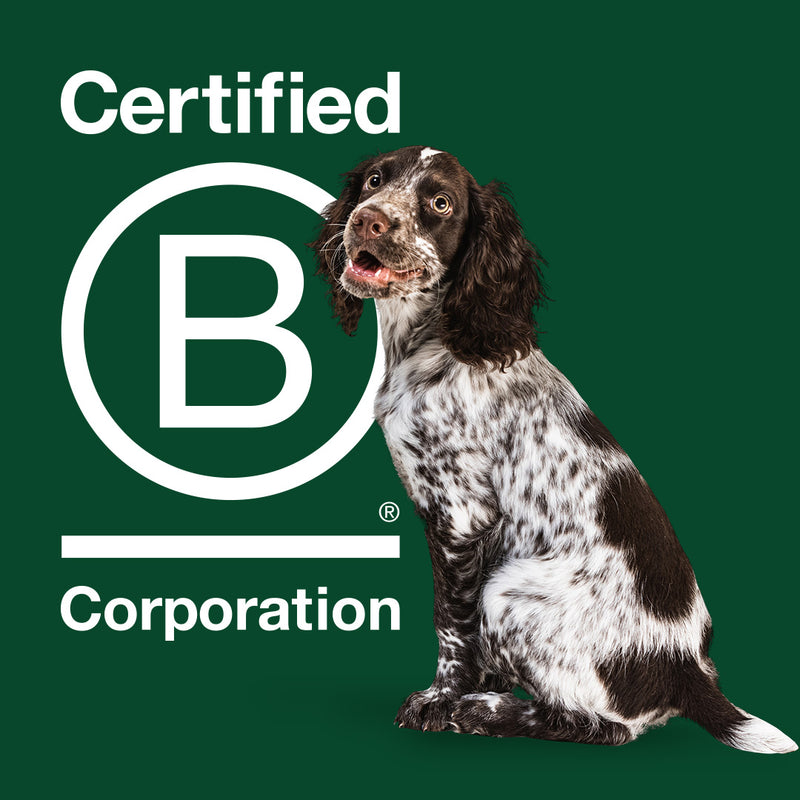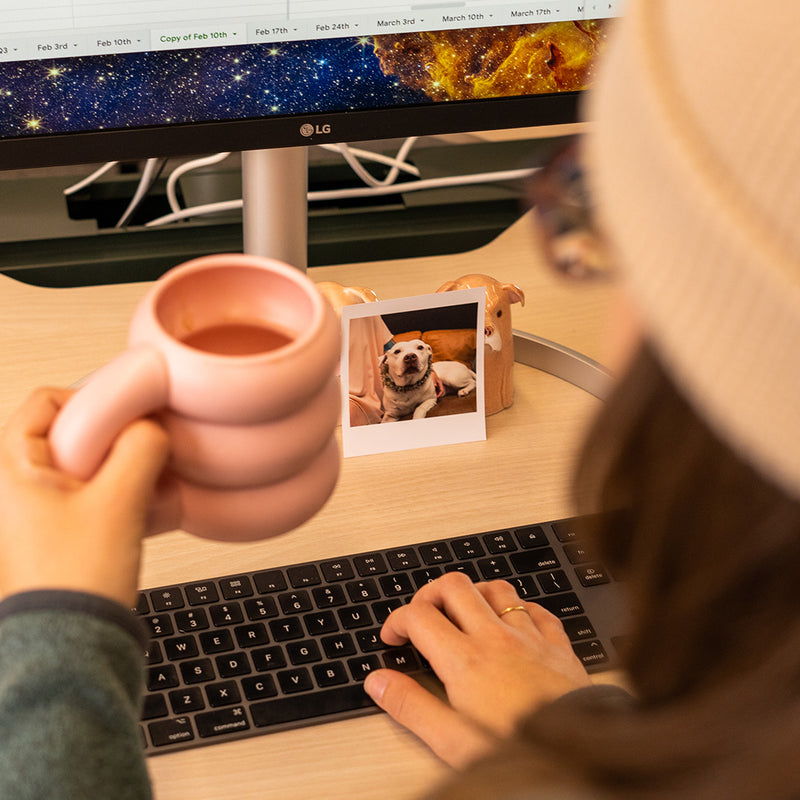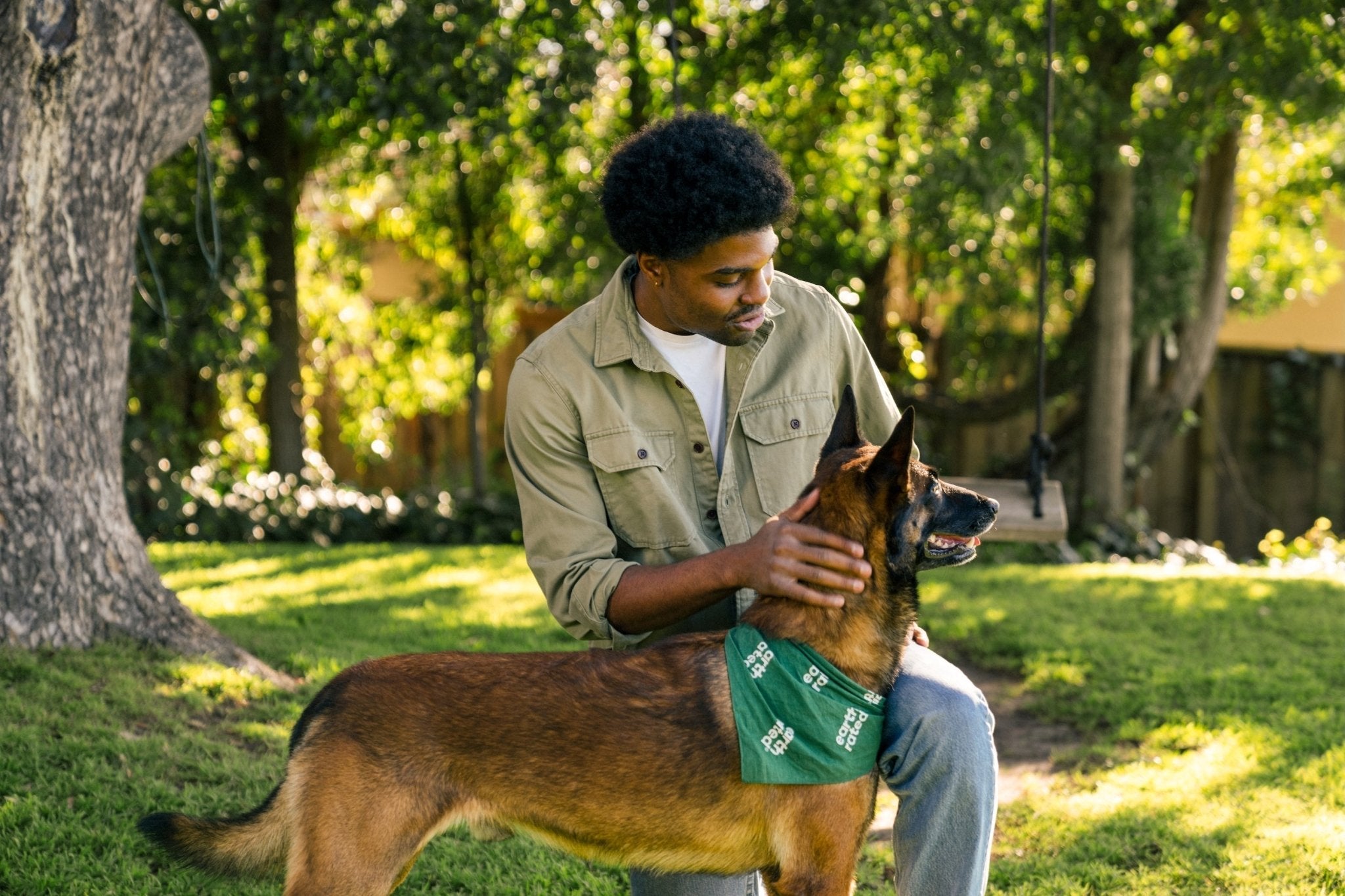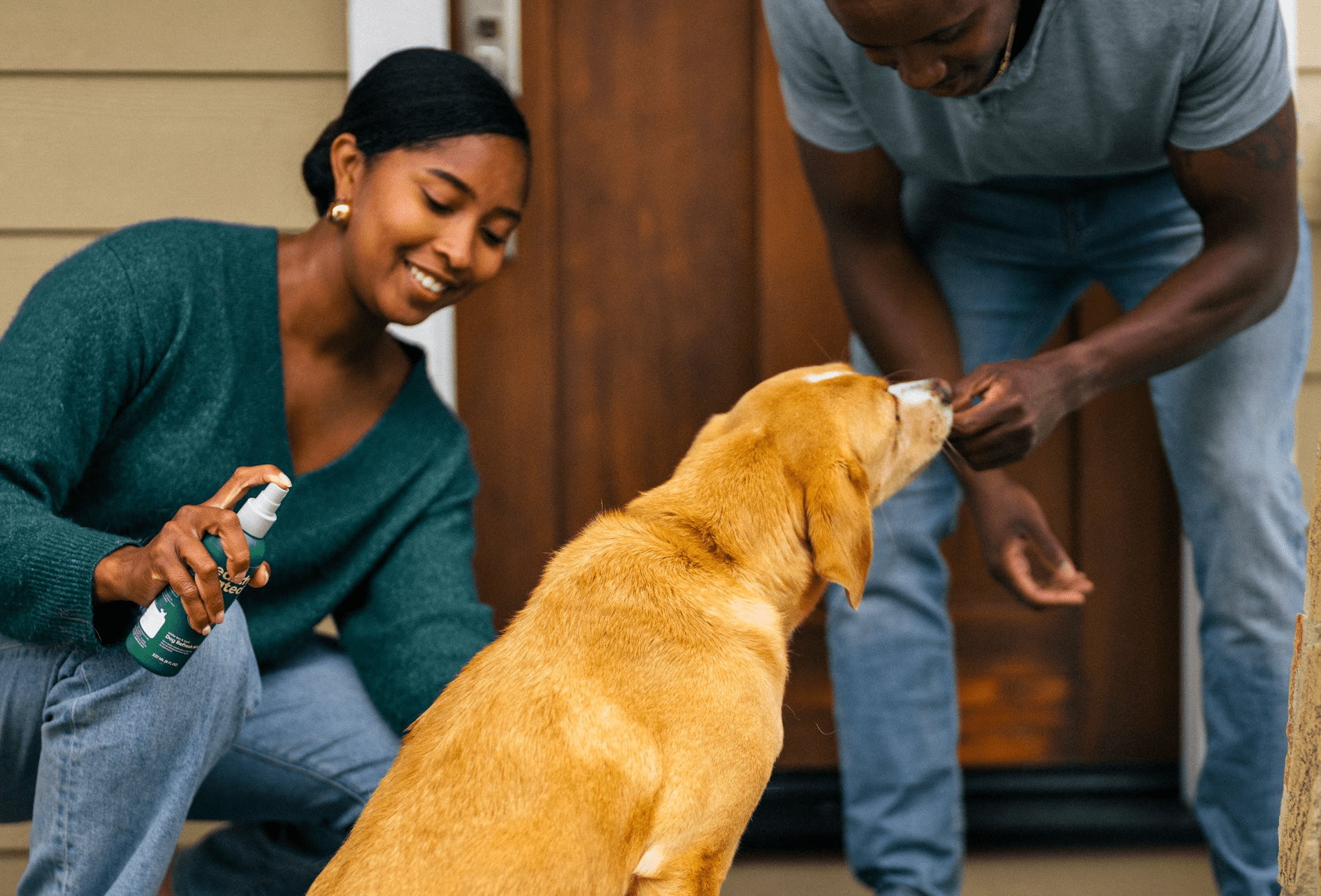When raising a puppy (or multiple puppies - lucky you!), it’s important to be aware of the different developmental stages, so you know what to expect and can spot any timeline issues.
Puppies should start walking when they’re between 2-4 weeks old. But, there are a bunch of different factors that can influence the exact time, including breed, size, maternal care, environmental stimulation, and health issues. Still, most dogs will fall within this window.
Timeline of Puppy Development
Although the timeline of puppy development might vary between dogs, this is what you can roughly expect.
Neonatal Stage (0-2 Weeks)
Isa-May Pellerin, a certified animal health technician explains that at 2 weeks old, “puppies are sleeping a lot, suckling on their mom and crawling around. Their eyes start to open, and they gain weight at a steady rate.”
They should be feeding and sleeping 90% of the time at this age.
Development of Senses (2-4 Weeks)
When puppies hit two weeks of age, their senses will begin to develop and they’ll gain a little more independence from mom as a result.
Isa notes that 3-week-old puppies will start to hear, have blurry vision, be able to sit and stand for brief periods, and they can start to eat small quantities of food slurry.
They also start to interact with their littermates, socialize, wag their tail and attempt to walk.
Pups at this age still need to be stimulated by their mom in order to eliminate waste.
Gaining Independence (4-8 Weeks)
Between 4-8 weeks is when you can start to wean puppies off mom’s milk and introduce them to food. Puppies will become very independent at this age and start to play and show off their goofy little personalities.
This is also when socialization becomes essential. At about 5 weeks of age, puppies enter their critical socialization period. Exposing them to new experiences at this age helps set them up in later life to be confident and sociable.
Socialization (8-14 Weeks)
A puppy’s key socialization period continues until they’re about 14 weeks old. It’s important to keep introducing them to new sights and sounds on a regular basis.
This is the time when they’re most impressionable and learn all the key information that they’ll take with them into adulthood.
If the puppy is going to a new home, this is usually the ideal time, as they’ll be fully weaned off their mama.
When Do Puppies Typically Start Walking?
Puppies typically start walking when they’re between 2-4 weeks old, though it can take a few days for them to find their balance and be able to do it successfully. As always, different factors can influence where in this 2-4 week period they start to walk.
Breed and Size
Some breeds reach physical maturity quicker than others—usually due to size.
A Yorkshire Terrier, for example, is going to be considered a fully grown dog much quicker than a St. Bernard, which means small breeds may be quicker to start walking than large breeds.
Litter Size
Studies have shown that larger litters can be a little slower to gain weight. Growing can also be dependent on the sharing of resources and limited space—so puppies from a larger litter may be slower to start walking.
Health Issues
Health issues can also influence when puppies begin to walk. If it’s over the typical time period of 2-4 weeks and you have a puppy who is not yet walking around, it’s a good idea to talk to your veterinarian, just to make sure everything is okay.
Signs Your Puppy Is Ready to Walk
There are a few signs that your puppy is ready to walk to pay attention to, including:
- Pushing up on their legs more and attempting to stand
- Increased activity, scooting and crawling around their space more
- Swaying less when sitting or standing, showing their balance is improving
- Interest in their surroundings, crawling towards interesting sounds or smells
When you start to see these signs, yay! This means your puppy will begin walking soon, and it’s important to make sure you have a safe environment for them to start doing so.
Isa also notes that there should be a dedicated, safe area where puppies can’t get caught under furniture or fall in between objects.
Supporting Your Puppy's Walking Development
As Isa explains, “dogs will start to walk naturally. It is best to let them go at their own pace. Unless a puppy has a physical handicap, no human intervention is necessary.”
You can also provide lots of exciting things in their environment to motivate them to want to explore. Interesting toys and objects around them will motivate them to investigate, which might lead to them standing up and walking towards them.
Puppies can begin walking at any time, and you might not be present, so make sure they’re contained and can’t go stumbling off somewhere where they can get themselves into trouble!
Keeping them in one room without stairs or another level is ideal or a playpen where they can’t escape.
Common Challenges and Solutions
There are a couple of setbacks you might face during the stage of your puppy learning to walk. For new dog owners especially, these can be unsettling, but most of the time, they’re very normal!
Coordination Issues
Coordination issues are normal when your puppy starts learning to walk—no one is a natural at anything on the first attempt! However, if the coordination doesn’t seem to be slowly improving, it might be time to check in with your veterinarian.
It could be nothing at all, and your puppy could simply be taking some time to find their footing, but health issues are better caught earlier, and your vet will be able to provide their expert opinion.
Fearfulness
Some puppies are naturally more fearful than others. Genetics play a huge role in influencing a dog’s personality, so no matter how safe and calm the environment, some puppies may struggle with a desire to explore.
If you encounter this, let the puppy go at their own pace. Don’t push them into something they aren’t comfortable with. Provide lots of incentives within their environment for them to explore, such as toys and scents, and let them go ahead on their own.
When they’re more comfortable and starting to come out of their shell, you can also provide some gentle encouragement.
Final Thoughts
Puppies should start walking around 2-4 weeks, but there’s no exact timeline that every puppy will find their paws because different factors will influence this, such as breed, litter size, and health issues.
As long as your puppy falls within this window, they’re developing normally. If you’re concerned about a late bloomer or coordination issues, it’s best to talk to your vet.
Prepare for your puppy’s eventual daily walks by getting Earth Rated poop bags, ensuring every step of their development is purpose-driven.
FAQs
What Should 2-week-old Puppies Be Doing?
At this stage, puppies won’t be doing very much except sleeping, suckling on their mama, and occasionally crawling around. Puppies around this mark are still very reliant on mom for everything.
What to Expect from a 3-week-old Puppy?
At this age, puppies should have open eyes, be starting to walk around, and become more interested in their environment. Although they’re still reliant on their mom, they’ll be a little more independent and should be starting to show off their personality.
Can I Take My 10-week-old Puppy for a Walk?
As puppies are not fully vaccinated at 10 weeks old, they shouldn’t be walked in unfamiliar areas. Diseases like parvovirus can live on the ground, so you don’t want to expose them to places other unknown dogs have been.
Where Do You Keep a 3-week-old Puppy?
Since a puppy at this age is only just beginning to walk, it’s important to keep them in a safe, contained area. This might be a closed-off room with no hazards or a playpen with their mom and littermates.












